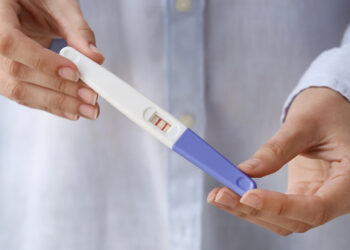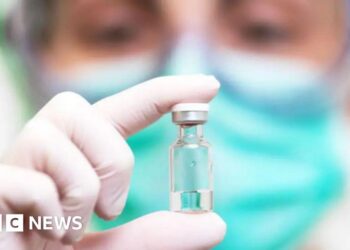TOPLINE:
A single intravenous dose of etranacogene dezaparvovec gene therapy maintained factor IX (FIX) activity at 45.7 IU/dL after 5 years in patients with hemophilia B, eliminating the need for prophylaxis with no late-emergent safety events.
METHODOLOGY:
- Researchers conducted a phase 2b, open-label, single-arm, multicenter trial evaluating a single intravenous dose (2 × 1013 genome copies/kg) of etranacogene dezaparvovec in three adult participants with severe or moderately severe hemophilia B (FIX ≤ 2%).
- Primary endpoint assessment measured FIX activity ≥ 5 IU/dL at 6 weeks, while secondary endpoints included bleeding frequency, FIX concentrate use, and adverse events over 5 years of follow-up.
- Participants were positive for preexisting adeno-associated virus serotype 5 neutralizing antibodies, with a mean titer of 25 at dosing, and received FIX recovery assessment before administration.
- Analysis included weekly FIX level assessments for 6 weeks, followed by biweekly until week 26, monthly until month 12, and twice-yearly up to month 60, along with quality-of-life assessments using Hem-A-QoL.
TAKEAWAY:
- Mean FIX activity increased to 40.8 IU/dL (range, 31.3-50.2) at year 1 and was maintained at 45.7 IU/dL (range, 39.0-51.2) at year 5, with two participants achieving levels in the nonhemophilia range (≥ 40 IU/dL).
- Mean annualized bleeding rate decreased to 0.14 for the cumulative follow-up period over 5 years, with two participants experiencing no bleeds throughout the study period.
- All participants discontinued and remained free of FIX prophylaxis after treatment, with only one participant requiring episodic FIX replacement therapy for elective surgeries and two bleeding episodes.
- No clinically significant elevations in liver enzymes, requirement for steroids, FIX inhibitor development, thrombotic complications, or late-emergent safety events were observed in any participant over the 5-year period.
IN PRACTICE:
“Five years after administration, etranacogene dezaparvovec was effective in adults with hemophilia B with a favorable safety profile. Participants are eligible to participate in an extension study for 10-year additional follow-up,” wrote the authors of the study.
SOURCE:
The study was led by Annette von Drygalski, MD, Division of Hematology/Oncology, Department of Medicine, University of California San Diego. It was published online in Blood Advances.
LIMITATIONS:
According to the authors, while the study demonstrated sustained efficacy and safety, the small sample size of only three participants limits the generalizability of the findings. The researchers noted that longer-term follow-up studies are needed, and all participants have enrolled in an extension study for an additional 10 years to further evaluate the durability and safety of the treatment.
DISCLOSURES:
The study was supported by CSL Behring. Drygalski disclosed serving as a consultant for BioMarin, Regeneron, Pfizer, Bioverativ/Sanofi, Sobi, CSL Behring, Novo Nordisk, Pfizer, Spark Therapeutics, Takeda, Genentech, and uniQure and being a cofounder and member of the board of directors of Hematherix LLC. Additional disclosures are noted in the original article.
This article was created using several editorial tools, including AI, as part of the process. Human editors reviewed this content before publication.
Source link : https://www.medscape.com/viewarticle/hemophilia-b-gene-therapy-shows-5-year-success-2025a1000jof?src=rss
Author :
Publish date : 2025-07-25 06:04:00
Copyright for syndicated content belongs to the linked Source.










